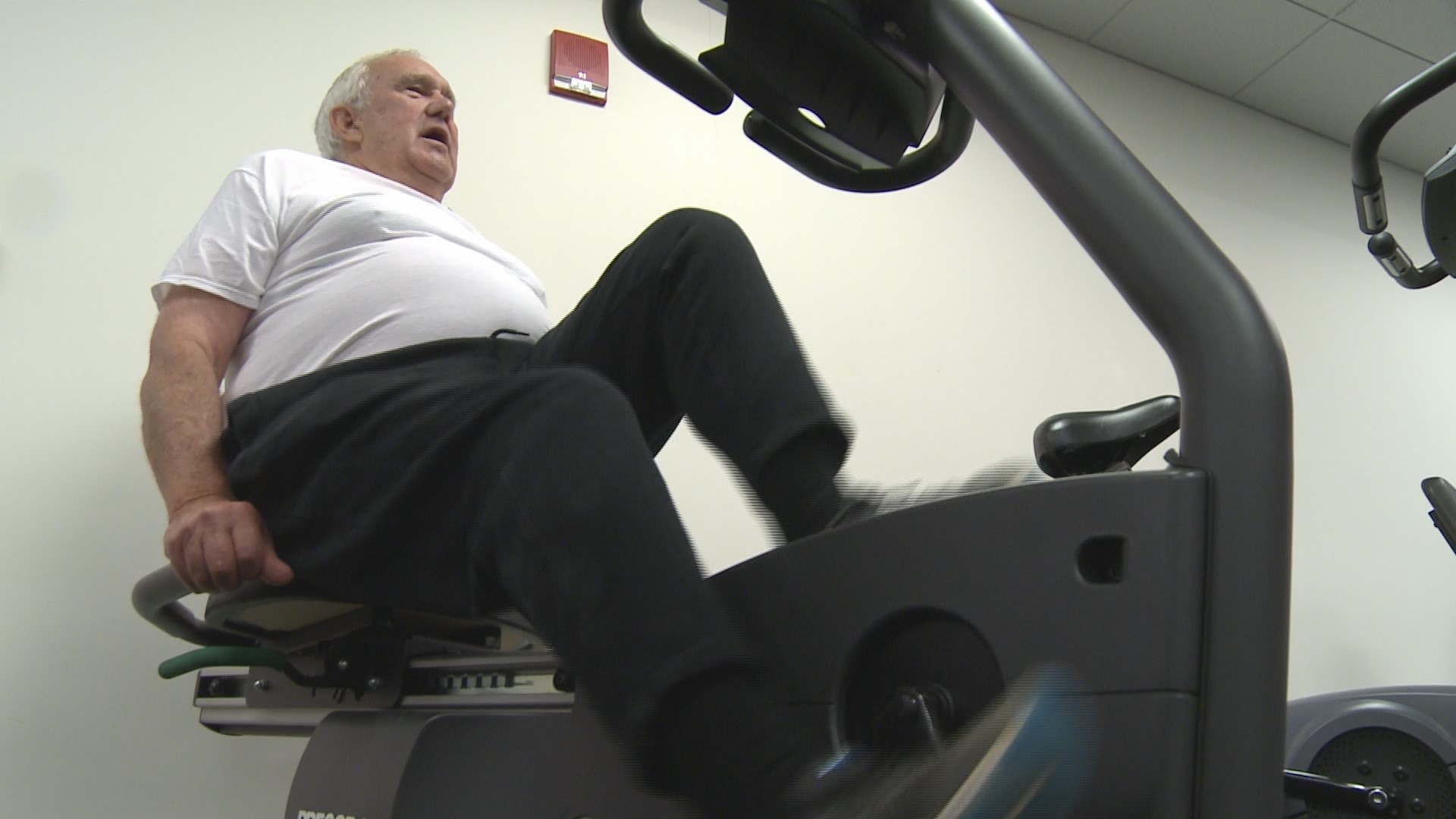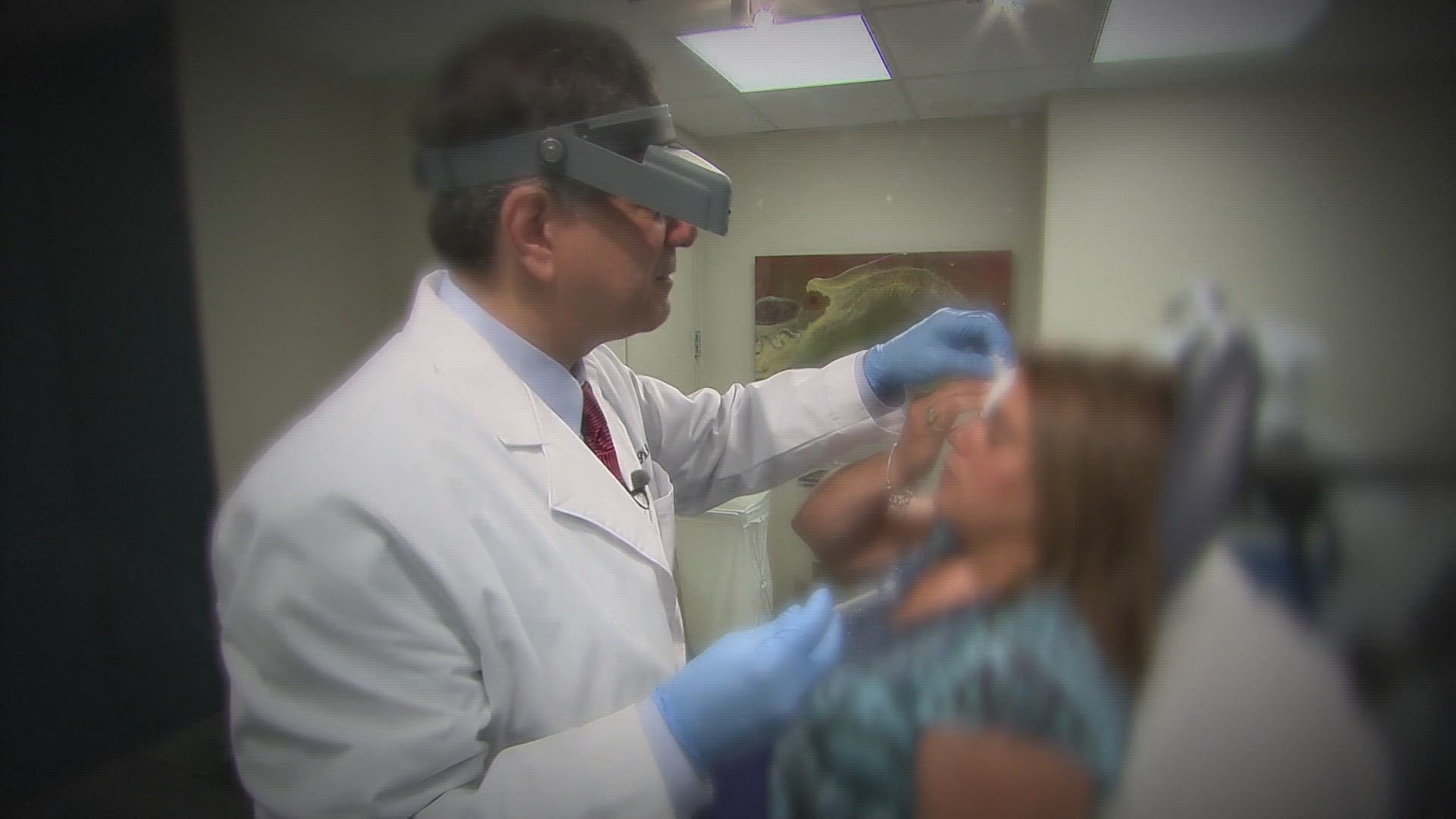A new study is highlighting how exercise and diet can slow prostate cancer progress.
Since he's retired, 65-year-old Gene Asay admits that he's become much less active.
"It's so easy when you retire and you can sit back and think about things you used to have done and not worry about exercise which is so important after you get past 65," said Asay.
But as a Vietnam War veteran and former member of the peace corps he's no stranger to working hard especially when his life is on the line.
"I was screened in Bellingham for PSA and it was at a normal level a few years ago and then it slowly started climbing," said Asay.
Doctors confirmed that Gene has prostate cancer but did not recommend treatment. The next steps for patients like Gene is observation and follow-up visits to track cancer growth.
Now a new study, led by Dr. Jonathan Wright of Fred Hutchinson Cancer Center, is looking at the possibility of continuing to slow prostate cancer through diet and exercise.
"All obese and overweight men have worse cancer outcomes worse rate of progression," said Wright.
Wright is using this randomized study to understand how obesity can drive cancer. Asay is one of many patients enrolled in one of two programs aimed at better understanding the connection between lifestyle and cancer.
The first program includes a set of men who are given general recommendations about how to have a healthy life. The second program involves enrolling the men in an intervention program. These men are given extensive training on health, including a trainer and nutritionist for three months. Wright said the second approach is proven to improve general health.
“Not only do people in the studies lose 7 to 10 percent of their weight they keep it off for 10, 15, 20 years thereafter. There's data showing that we are helping men adopt a healthy lifestyle, improve their health and improve their fight against cancer,” said Wright.
Asay, who is enrolled in the second program, has already met that goal, losing 7 percent of his body weight in just three months. He says he'll keep going if it means avoiding treatment and the terrible side-effects.
“I'm looking forward to losing another 30 pounds, which I've got another nine months to do that, so I'm really comfortable with where I am right now," said Asay.
"Thanks mainly to Dr. Wright. I can't say enough good about him and of course Sarah the nutritionist and Matt the personal trainer,” added Asay.
Wright believes his study will prove a healthier lifestyle can slow prostate cancer. He also hopes insurance companies will take notice. He says when someone has a heart attack they are given a prescription for rehab involving exercise. He wonders why the same cannot be done for men with prostate cancer.
“It should be a no-brainer, absolutely it should be an easy sell, but what we need to do, we all struggle with trying to do this. We need direction on a lifestyle change, but it has so many downstream positive implications. I'm excited for what we're doing. I think we're going to help people and I think we're going to help in the fight against cancer and it's exciting to be a part of,” said Wright.
Fred Hutch is actively recruiting patients for the study. Their goal is to have 200 patients, and they are open to men who meets eligibility requirements outlined in the study and can travel to the Seattle area.


